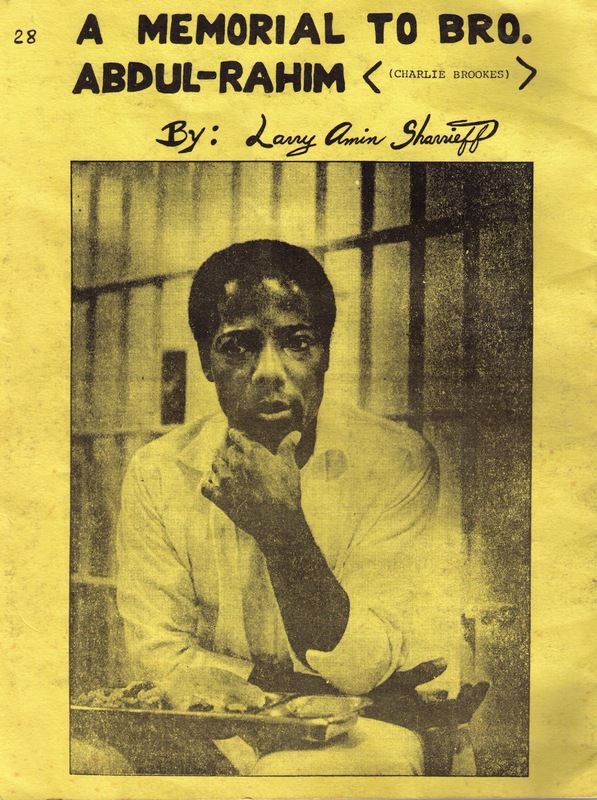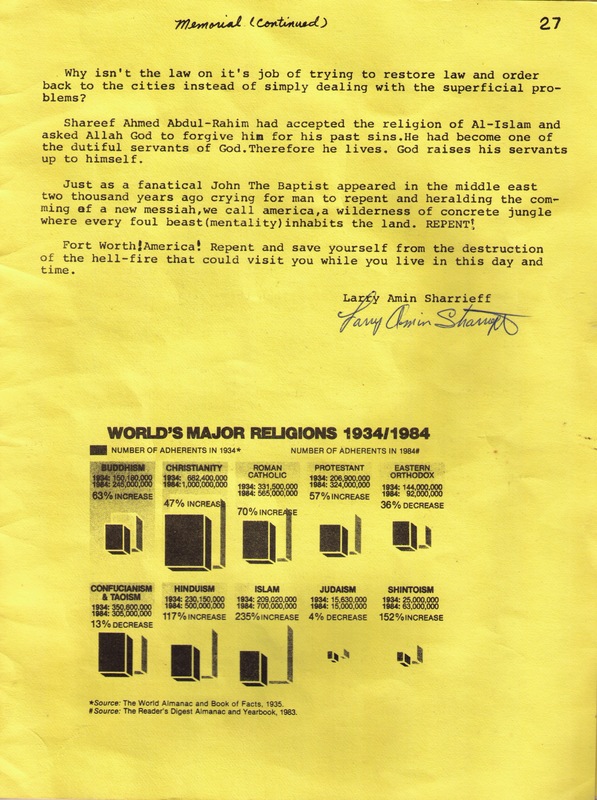Inevitable Discrimination
"All are equal before the law and are entitled without any discrimination to equal protection of the law. All are entitled to equal protection against any discrimination in violation of this Declaration and against any incitement to such discrimination." Article 7, Universal Declaration of Human Rights
Discrimination is inevitable. A child discriminates against nature when he or she picks the fully- bloomed tulip rather than the debatably ugly dandelion. An employer discriminates when he or she chooses the more experienced candidate rather than the young amature. A baseball coach discriminates when he picks the boy for the team solely because he is a boy and cuts the girl. As you can see, there is prejudice in all aspects of life. It seems quite harmless in these seemingly trivial instances, however, bigotry can become significant when someone’s life is on the line. A lot of people feel that in the case of Charlie Brooks Jr, an African American male who was lethally injected for the murder of David Gregory, there was great injustice. It is thought by many that Charlie Brooks Jr. was sentenced to death row because of his status of paralegal and his conversion to Islam. If these opinions are true, then it is quite clear Charlie Brooks was not equal before the law and did not receive equal protection of the law.
In a TAVP oral history, Derrek Brooks talks about the injustice of how his father’s accomplice, Woody Loudres, is given a reduced sentence while Charlie ultimately receives the death penalty. Derrek tells the story about how his father and Woody Loudres went to a car dealership while under the influence of drugs and kidnapped an employee on the job. The two men then brought their victim to a motel where they tied him up and gagged him. Witnesses at the time heard a gunshot come from the room and both Charlie and Woody were convicted of murder and sentenced to death row. The court, however, failed to interview any of the witnesses and based their decision solely on evidence. A few years after Charlie and Woody’s sentence to death row, both men appealed their cases. Charlie Brooks’ appeal was rejected while Woody Loudres’ sentence was reduced to 40 years in prison.
Derrek is uncertain why his father was treated differently in relation to Woody Loudres who committed the same crime, but thinks it could be due to his father becoming a paralegal while incarcerated. Charlie would help other criminals get their sentences overturned, get new court dates, or get their time in prison reduced. In Derrek’s interview he says: “And I personally felt like maybe the state of Texas didn't really want him helping all these people. So they really didn't have the incentive to want to keep him alive”. If it is true that Charlie's occupation of paralegal contributed to his execution, then there is no doubt that his right of equal protection from discrimination was infringed upon by the state.
There are multiple factors that made it easy for the court system to discriminate against Charlie Brooks's Jr. It could have been his race, his prior convictions, or his conversion to Islam. It seems peculiar if the discrimination was solely based off of race, however, because Woody Lourdes was also an African American male. Although they were of the same race, Woody was given the opportunity to appeal his case and receive a reduction of his sentence. Another reason that the court could have been biased towards Charlie Brooks Jr. was because of his prior conviction of possession of illegal firearms. This probably contributed to him receiving the death penalty but is not thought to be a significant reason. Many people feel that the main reason Charlie Brooks Jr was eventually executed was due to his conversion to Islam while in prison. He began reading the Qur-an and worshipping Allah on a daily basis, for he mentions this in his letters to his sons. He even went as far as changing his name to Shareef Ahmed Abdul- Rahim which means “noble servant of the most merciful creator”. It is thought that Charlie’s conversion made people uncomfortable which accelerated the court’s decision to go on with his execution. Larry Amin Sharrief stated in the Texas Voice “He was killed because he accepted the religion of al- islam” and become the perfect model inmate”. If Charlie’s religion was one of the key factors for deciding his fate, then he was unjustly prosecuted.
Although there is discrimination against religion, race, sex, age, height, weight, and virtually anything thinkable, it needs to be curtailed within the justice system. Discrimination will never cease because it is only human nature. As humans, however, it is our job to try and give people equal treatment under the law. In this case specifically, Charlie Brooks Jr. was thought to be unjustly discriminated against because of his occupation and religion. These two factors that make up Charlie Brooks’ identity should not have had the power to end his life.
By Skylar Grote


